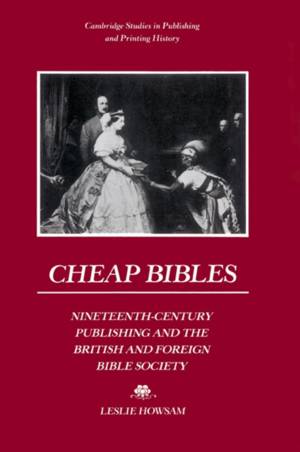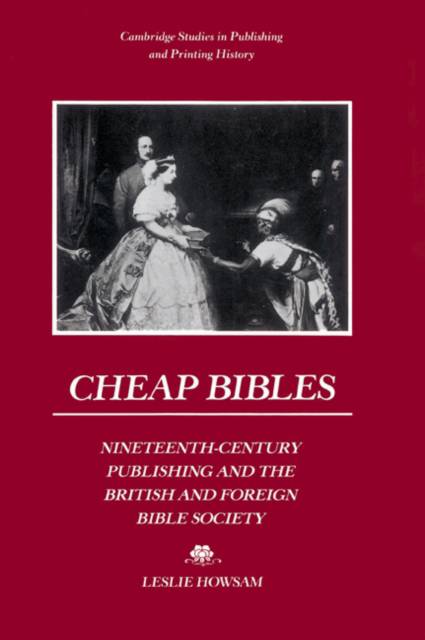
Bedankt voor het vertrouwen het afgelopen jaar! Om jou te bedanken bieden we GRATIS verzending (in België) aan op alles gedurende de hele maand januari.
- Afhalen na 1 uur in een winkel met voorraad
- In januari gratis thuislevering in België
- Ruim aanbod met 7 miljoen producten
Bedankt voor het vertrouwen het afgelopen jaar! Om jou te bedanken bieden we GRATIS verzending (in België) aan op alles gedurende de hele maand januari.
- Afhalen na 1 uur in een winkel met voorraad
- In januari gratis thuislevering in België
- Ruim aanbod met 7 miljoen producten
Zoeken
€ 102,45
+ 204 punten
Omschrijving
The cheap Bibles of nineteenth-century Britain were read in millions of homes, and were also potent symbols of national virtue. In an age of social ferment, cheap Bibles - most published by the British and Foreign Bible Society - represented both the promise of mass literacy and the benefits of industrialisation. This book, based on correspondence and other archival records, tells the story of the BFBS from two perspectives: its place in the history of publishing and printing and in contemporary society. The BFBS, founded in 1804, grew out of the evangelical revival and became a popular crusade. 'Ladies Bible Associations' sprang up to supply the poor with cheap Bibles and contribute to the production of Bibles in foreign languages for the salvation of souls abroad. To meet the growing demand the Society experimented with new technologies including stereotyping, machine printing and bookbinding, and a unique distribution system.
Specificaties
Betrokkenen
- Auteur(s):
- Uitgeverij:
Inhoud
- Aantal bladzijden:
- 264
- Taal:
- Engels
- Reeks:
Eigenschappen
- Productcode (EAN):
- 9780521522120
- Verschijningsdatum:
- 8/08/2002
- Uitvoering:
- Paperback
- Formaat:
- Trade paperback (VS)
- Afmetingen:
- 152 mm x 229 mm
- Gewicht:
- 390 g

Alleen bij Standaard Boekhandel
+ 204 punten op je klantenkaart van Standaard Boekhandel
Beoordelingen
We publiceren alleen reviews die voldoen aan de voorwaarden voor reviews. Bekijk onze voorwaarden voor reviews.









